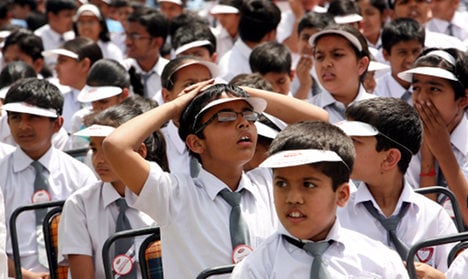Supported by the foreign ministry, the project has been designed to cultivate a new generation of Indian students and workers.
So far, 300 state-run schools have begun teaching German as their primary foreign language, the Tagesspiegel newspaper reported on Thursday.
This feeds into a long-term specific focus on recruiting “international talent in the areas of maths, IT, natural sciences and technology,” said TU9 – a group made up of nine of Germany’s top technical universities – and the Goethe Institute.
If all goes according to plan, this could mean that in the next ten years over a million Indians could be German speakers.
Just two years ago the Indian education ministry decided to introduce a language other than Hindi, English and Sanskrit into the curriculum. Officials picked German over French, Chinese, Russian or Spanish. They may well be introduced at a later date though, the paper said.
The aim is to get 1,000 state schools involved in the project but 2017, but recruiting teachers has not been easy, project leader Puneet Kaur from the Indian Goethe Institute told the paper.
Teachers would only offered €290 a month – around 20,000 rupees – which for German-speaking Indians is not a lot, considering many learn the language to go into higher-paying jobs in business.
This makes recruiting difficult, and “it is not like we have 1,000 German teachers to hand,” said Kaur. She said that they were targeting universities and language school graduates nonetheless.
India’s size and economic situation also made travelling to schools and introducing the scheme in more rural areas difficult, she explained.
The Local/jcw



 Please whitelist us to continue reading.
Please whitelist us to continue reading.
Member comments